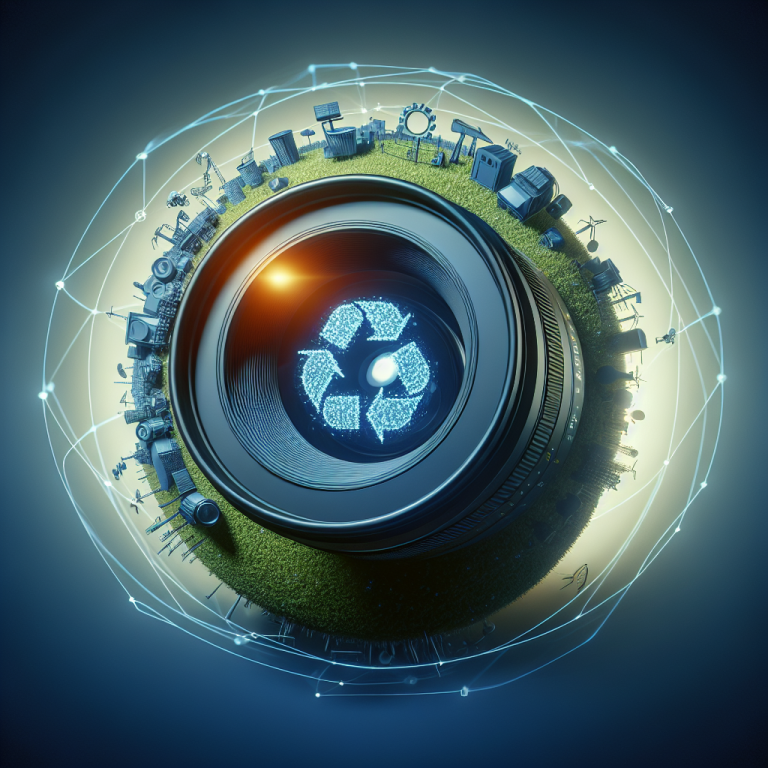Circular Economy: A Sustainable Development Trend for Businesses
Circular economy is becoming a prominent concept in the field of sustainable development, not only in Vietnam but also globally. This model promises to provide optimal solutions to resource and environmental challenges in the context of increasingly depleted resources.
What is Circular Economy?
Circular economy can be defined as an economic model in which products, materials, and resources are used as efficiently as possible. This means that instead of merely producing and consuming as in a linear economy model, circular economy encourages reuse, recycling, and waste reduction.
Trends in the Development of Circular Economy Business Models
Currently, circular economy business models are attracting the attention of many businesses due to their evident benefits. Below are some prominent trends:
5 Most Notable Circular Economy Business Trends Today
- Product-as-a-Service Model: Many businesses are shifting to a rental model to minimize waste and extend product lifecycles. For example, companies that rent clothing and industrial equipment.
- Waste Recycling and Reuse: The development of advanced recycling technologies allows waste to be turned into resources, enabling the optimization of production processes.
- Sustainably Designed and Repairable Products: Designing products with the goal of extending their lifespan and ease of repair is becoming increasingly popular, especially in the electronics industry.
- Asset Sharing and the Sharing Economy: Ride-sharing apps and personal item rental services are completely changing consumer consumption patterns.
- Digitalization and Technology in Circular Economy: The application of technologies such as Blockchain and IoT helps track and optimize product lifecycles, creating new opportunities for businesses.
Benefits and Challenges of Circular Economy
The circular economy model not only benefits businesses but also the surrounding environment. However, implementing this model also faces significant challenges.
Benefits
- Reduced Raw Material Costs: Reusing and recycling help businesses significantly save on raw material costs.
- Increased Competitive Edge: Businesses adopting circular economy often create products that not only save costs but are also environmentally friendly, thus gaining consumer preference.
- Improved Brand Image: Companies taking sustainable steps attract community interest and build a stronger brand.
- Environmental Protection: Reducing waste and optimizing resources will positively contribute to global environmental protection.
Challenges
- Initial Investment Costs: Transitioning to a circular economy model often requires a significant upfront investment.
- Changing Mindsets and Production Processes: Many businesses find it challenging to alter traditional thinking and production methods.
- Lack of Supportive Policies: Policies are still not well-developed to support businesses in transitioning to a circular economy model.
- Challenges in Product Recovery and Recycling: The process of recovering old products and recycling is not always simple and straightforward.
Examples of Successful Businesses with Circular Economy Models
Many businesses have successfully applied circular economy models and created positive impacts. Here are some exemplary cases:
Learning from Success: Exemplary Case Studies on Circular Economy
Companies like Patagonia in the fashion industry, Philips in lighting technology, and Unilever in FMCG have all implemented circular economy models with certain successes.
The Future of Circular Economy
The future of circular economy promises many opportunities for businesses, especially in developing countries like Vietnam.
Circular Economy: Vision 2030 and Opportunities for Vietnamese Businesses
Implementing circular economy development policies will create positive impacts in manufacturing reforms, reduce pollution, and provide advanced services for consumers.
Conclusion
Circular economy is becoming an inevitable path for sustainable development. Vietnamese businesses need to seize this opportunity not only for growth but also to contribute to environmental protection and build a future for the next generations.
Contact us today for tailored consultation!
Intage Vietnam: Your trusted partner for comprehensive and effective market research solutions.
📞 (+8428) 3820 5558
🌐 https://intage.com.vn/
🏢 45 Vo Thi Sau, Da Kao Ward, District 1, Ho Chi Minh City, Vietnam





